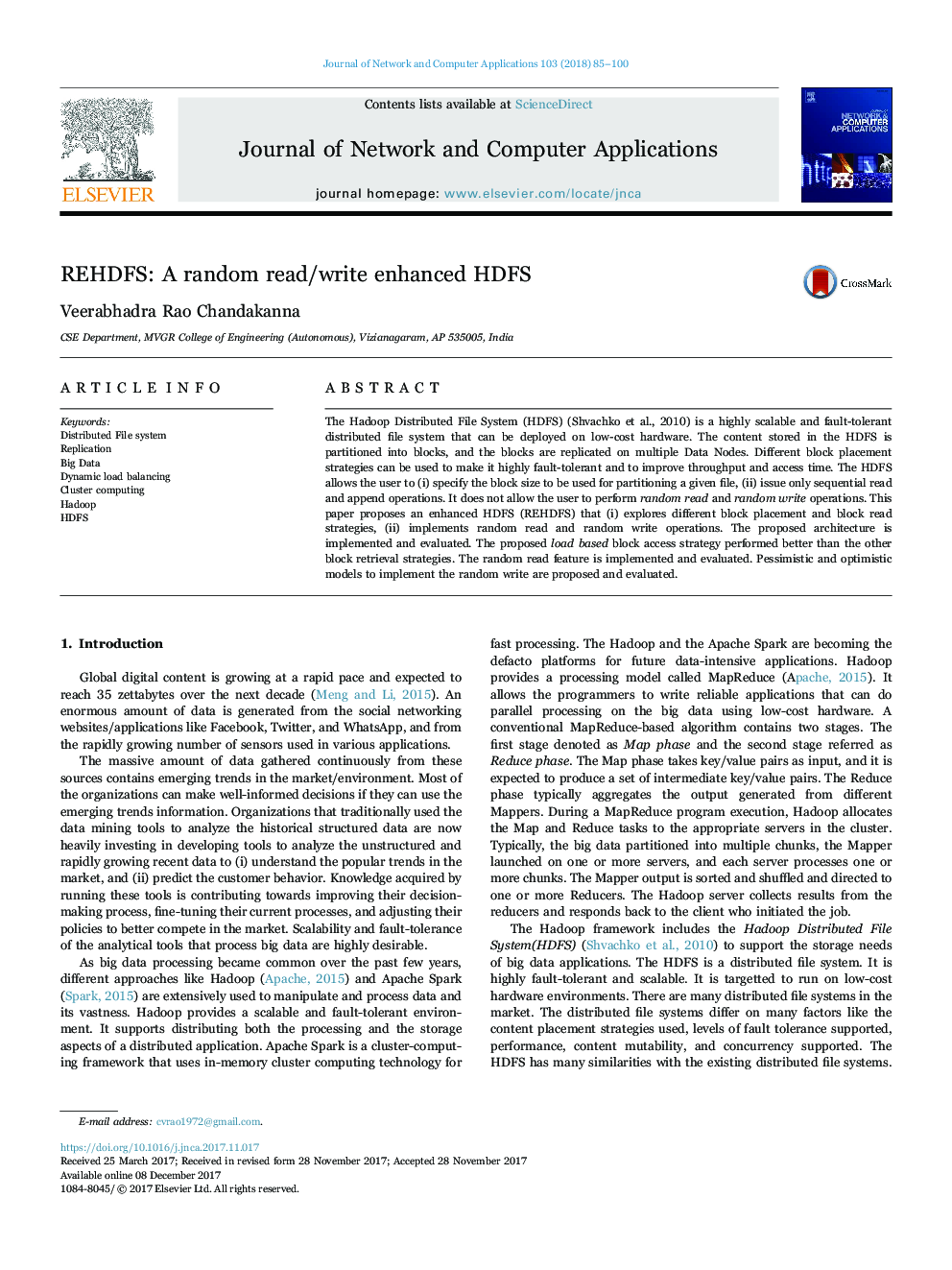| Article ID | Journal | Published Year | Pages | File Type |
|---|---|---|---|---|
| 6884872 | Journal of Network and Computer Applications | 2018 | 16 Pages |
Abstract
The Hadoop Distributed File System (HDFS) (Shvachko et al., 2010) is a highly scalable and fault-tolerant distributed file system that can be deployed on low-cost hardware. The content stored in the HDFS is partitioned into blocks, and the blocks are replicated on multiple Data Nodes. Different block placement strategies can be used to make it highly fault-tolerant and to improve throughput and access time. The HDFS allows the user to (i) specify the block size to be used for partitioning a given file, (ii) issue only sequential read and append operations. It does not allow the user to perform random read and random write operations. This paper proposes an enhanced HDFS (REHDFS) that (i) explores different block placement and block read strategies, (ii) implements random read and random write operations. The proposed architecture is implemented and evaluated. The proposed load based block access strategy performed better than the other block retrieval strategies. The random read feature is implemented and evaluated. Pessimistic and optimistic models to implement the random write are proposed and evaluated.
Keywords
Related Topics
Physical Sciences and Engineering
Computer Science
Computer Networks and Communications
Authors
Veerabhadra Rao Chandakanna,
